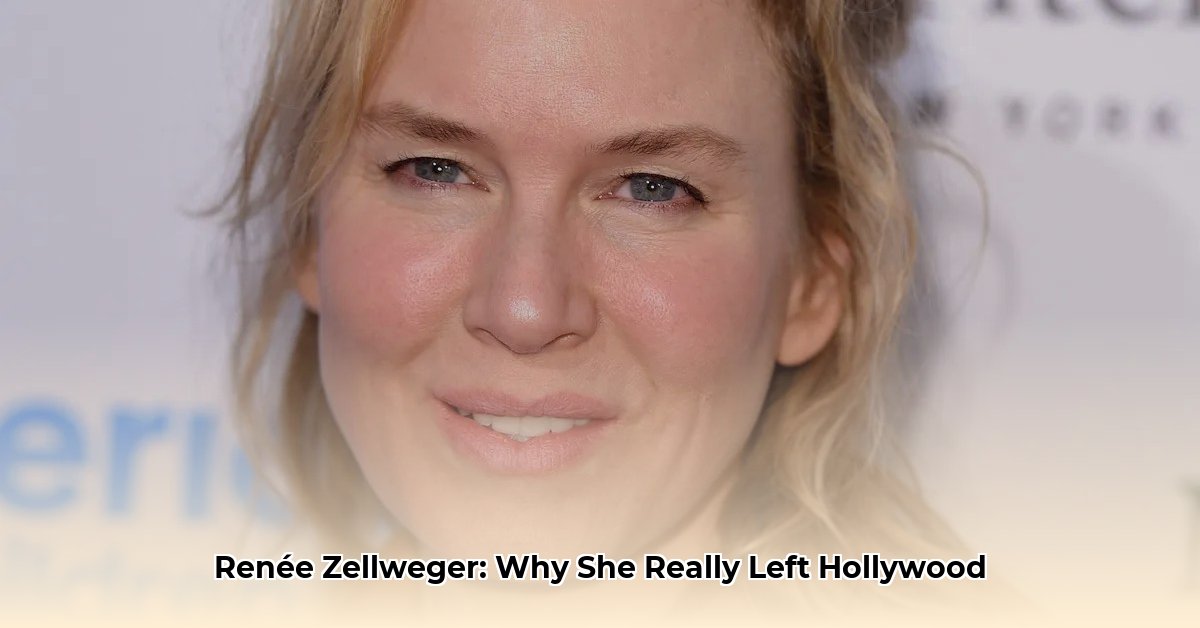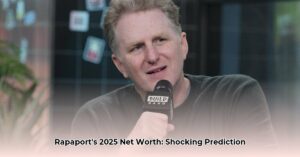Renée Zellweger, America’s sweetheart, Bridget Jones herself—one minute she was everywhere, gracing magazine covers and captivating audiences, the next, she vanished. It was 2010, and Hollywood was abuzz with speculation. Where did she go? The rumor mill churned out theories ranging from plastic surgery mishaps to secret projects and even a total meltdown. But the truth, as it often unfolds, proved far more compelling than fiction. This is the inside story of why Renée Zellweger stepped away from the dazzling, yet demanding, world of Hollywood—a tale of burnout, self-discovery, and the courage to prioritize personal well-being, even under the relentless glare of the spotlight.
The Pressure Cooker of Hollywood
Hollywood can be a relentless machine, a pressure cooker that tests even the most resilient. The constant scrutiny, the relentless demands of fame—it’s enough to make anyone crack. For Renée Zellweger, an actress who seemingly had it all, the heat became unbearable. After years of immersing herself in emotionally charged roles, she stepped away, leaving fans and industry insiders wondering, “Where did she go? And more importantly, why?”
Silence and Self-Discovery: Zellweger’s Six-Year Hiatus
Zellweger’s explanation for her break was simple yet profound: She was “sick of the sound of her own voice.” This wasn’t about the superficial trappings of fame; it spoke to a deeper exhaustion, a disconnect from the very essence of her craft. Years of inhabiting emotionally demanding characters likely took a toll, leaving her feeling depleted and creatively stagnant. The six years that followed weren’t about disappearing; they were about rediscovering herself outside the confines of Hollywood.
From 2010 to 2016, Zellweger embarked on a journey of personal exploration. She traded red carpets for classrooms, reportedly delving into international law. She nurtured her creativity through music composition, perhaps finding solace and expression in melodies and lyrics. She even got her hands dirty, reportedly involved in designing and building a house–a grounding, tangible project far removed from the ephemeral world of film. This period was likely less about escaping Hollywood and more about embracing the ordinary, the everyday experiences that connect us to our humanity.
The Comeback Queen: A Return to the Spotlight
Hollywood, as we know, loves a comeback story. And Renée Zellweger delivered. In 2016, she reprised her beloved role as Bridget Jones in Bridget Jones’s Baby, proving her star power hadn’t dimmed. Her performance wasn’t just a nostalgic return; it carried a new depth, a maturity born from her time away. Just a few years later, she stunned audiences and critics alike with her portrayal of Judy Garland in the biopic Judy. The performance earned her a second Oscar, solidifying her status not just as a beloved actress, but as a powerhouse performer. The hiatus, once a mystery, now seemed like a strategic retreat, a period of recalibration that allowed her to return stronger and more authentic than ever.
More Than Burnout: The Nuances of a Hollywood Hiatus
While burnout undoubtedly played a role, Zellweger’s break likely stemmed from a confluence of factors. The pressure to maintain a specific image, the emotional toll of inhabiting complex characters, the constant scrutiny of the media—it’s a recipe for exhaustion. Her time away suggests a need to reclaim her narrative, to define herself outside the roles she played. This resonates with a broader conversation about mental health in high-pressure industries, particularly the entertainment world. Experts suggest that the constant demand for public performance can be particularly challenging, leading to anxiety, depression, and a sense of disconnect from one’s authentic self. Zellweger’s story serves as a powerful reminder that prioritizing well-being, even at the height of success, is not a sign of weakness but a sign of strength. It’s a testament to the importance of self-care and the courage to step away from the spotlight to nurture one’s own light.
A Table of Zellweger’s “Off-Screen” Pursuits
| Activity | Possible Motivations | Potential Benefits |
|---|---|---|
| International Law Studies | Intellectual curiosity, exploring new fields | Broadened perspective, deeper understanding of global issues |
| Music Composition | Creative expression, artistic exploration | Personal fulfillment, development of new skills |
| Homebuilding | Practical skills, tangible creation | Sense of accomplishment, grounding in everyday life |
| Dog Rescue | Compassion, nurturing instinct | Emotional connection, making a difference in animals’ lives |
| Production Company | Entrepreneurial spirit, creative control | Career diversification, empowering other artists |
| Caring for a friend | Altruism, deepening personal connections | Strengthening relationships, providing support |
Beyond the Headlines: Unanswered Questions and Ongoing Exploration
While Zellweger has offered glimpses into her time away, many questions remain unanswered. The specifics of her international law studies, the nature of her musical compositions, the details of her travels—these remain largely private. This air of mystery arguably adds to her allure, reinforcing the sense that she prioritizes her personal life over public consumption. Furthermore, her story sparks broader discussions about the pressures of fame and the importance of self-care in demanding professions. Ongoing research continues to explore the impact of constant public scrutiny on mental health, and Zellweger’s experience serves as a valuable case study in the complexities of navigating a high-profile career. Her decision to step back, to prioritize her well-being, offers a powerful message: that true success isn’t solely defined by external validation, but also by internal peace and fulfillment.







